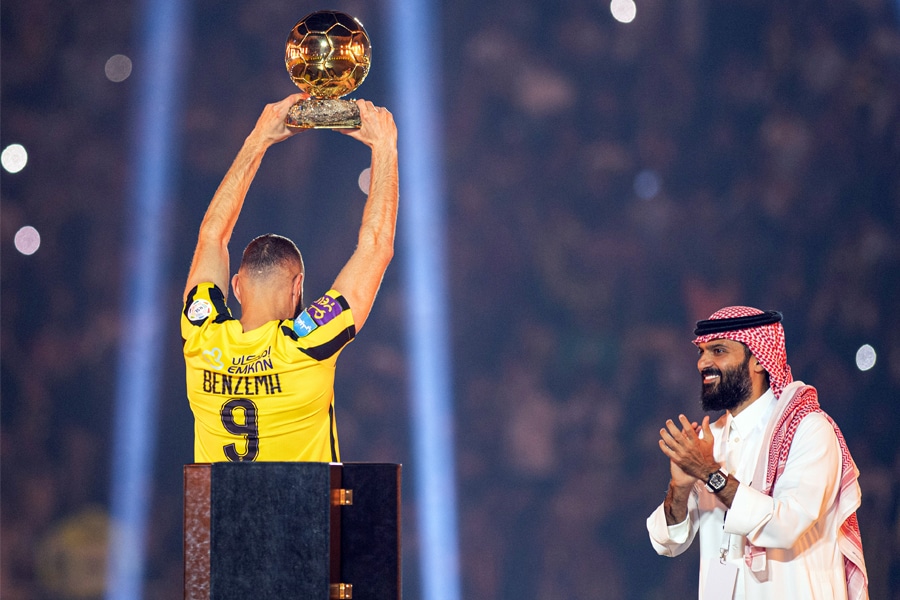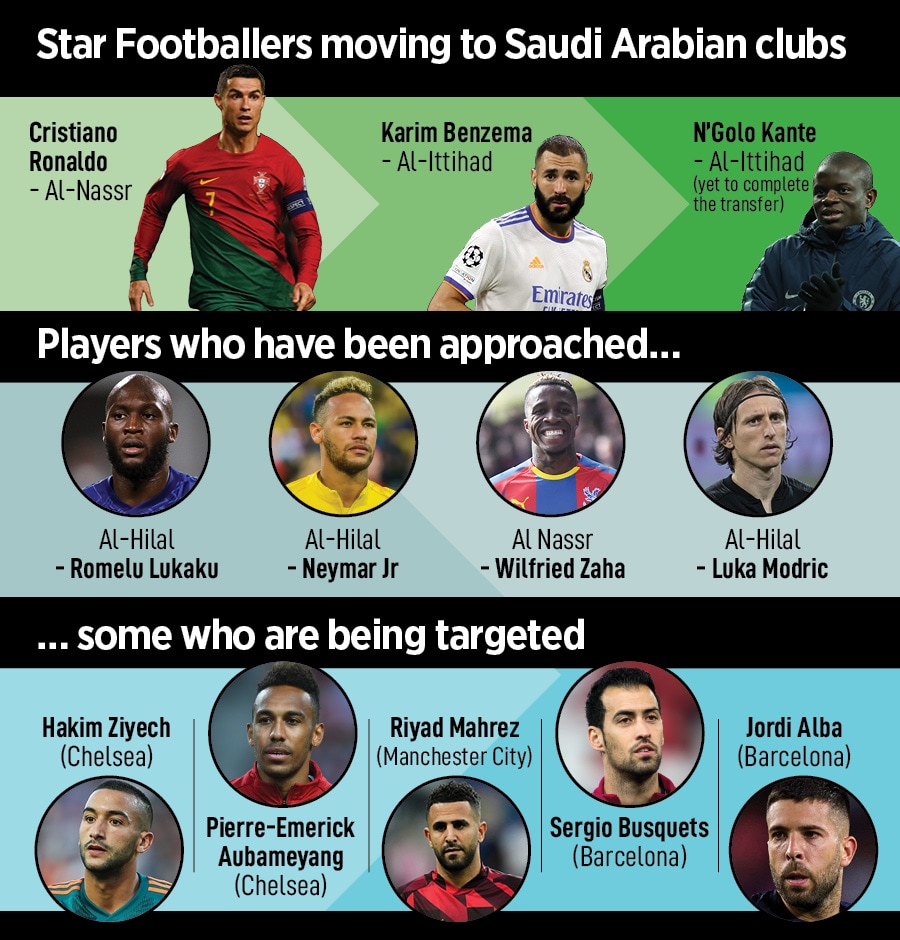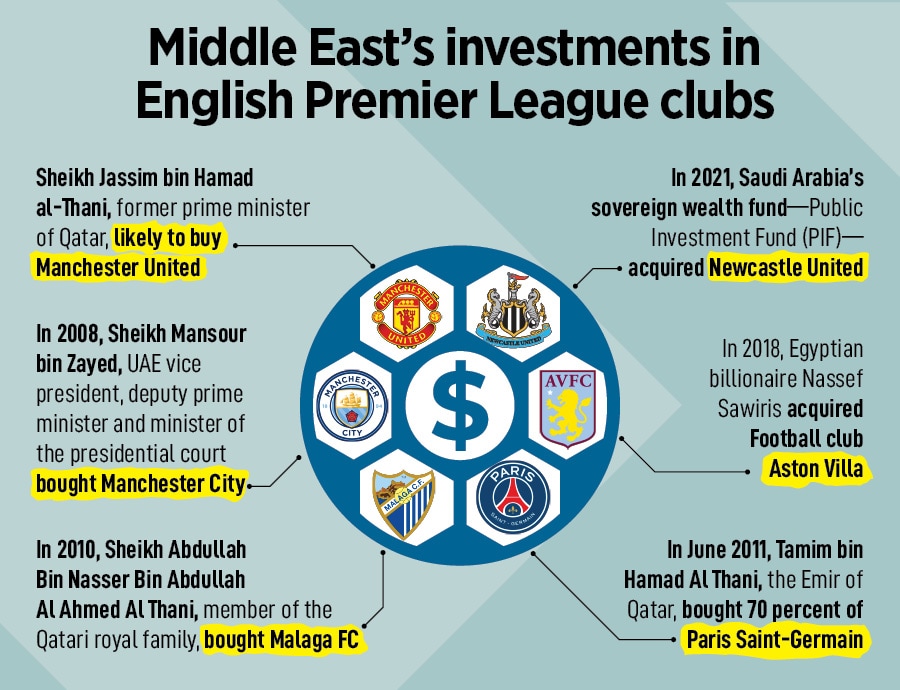
From Cristiano Ronaldo to Karim Benzema, Middle Eastern countries are eyeing star footballers. Here's why
Saudi Arabia and Qatar have been making headlines with their investments in European football. The players, most of whom are past their prime, are lapping up these offers for the big bucks
 35 year-old French soccer star, Karim Benzema left Real Madrid and signed a three-year contract with Al-Ittihad; Image: Stringer/Anadolu Agency via Getty Images
35 year-old French soccer star, Karim Benzema left Real Madrid and signed a three-year contract with Al-Ittihad; Image: Stringer/Anadolu Agency via Getty Images
Manchester United might reportedly have a new owner: Qatar’s Sheikh Jassim bin Hamad al-Thani.
As per reports, Al-Ahli has submitted an official contract bid to Riyad Mahrez and negotiations are underway on player side. Similarly, footballer Romelu Lukaku has received a formal offer from Saudi Arabia’s football club Al-Hilal for a two-season contract worth €50 million.
Two star footballers—Cristiano Ronaldo and Karim Benzema—are expected to play for the Saudi Pro League in the upcoming season post their transfers.
These are some big updates in the world of football. Clearly, Saudi Arabia and Qatar have been in the limelight since the beginning of this transfer season. How are these trends likely to affect Premier League football clubs, the players and most importantly, the sport. Forbes India explains:
Cristiano Ronaldo has been paving the way for high-profile footballers to play in the Middle East after he signed a deal with Al-Nassr until 2025 in December. According to AFP, he is set to receive the biggest salary in the history of the game: £177 million ($215 million) per year. In June, French football player Karim Benzema left Real Madrid and signed a three-year contract with football club Al-Ittihad. He is expected to earn a huge salary of €200 million per season. Chelsea's N'Golo Kante has reportedly completed his medical and is all set to sign a two-year contract for €100 million per season with Al-Ittihad.










